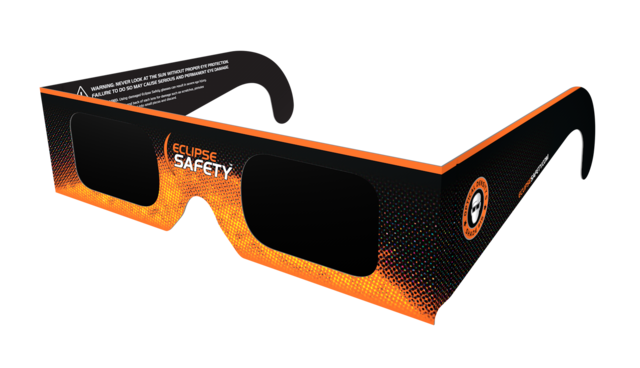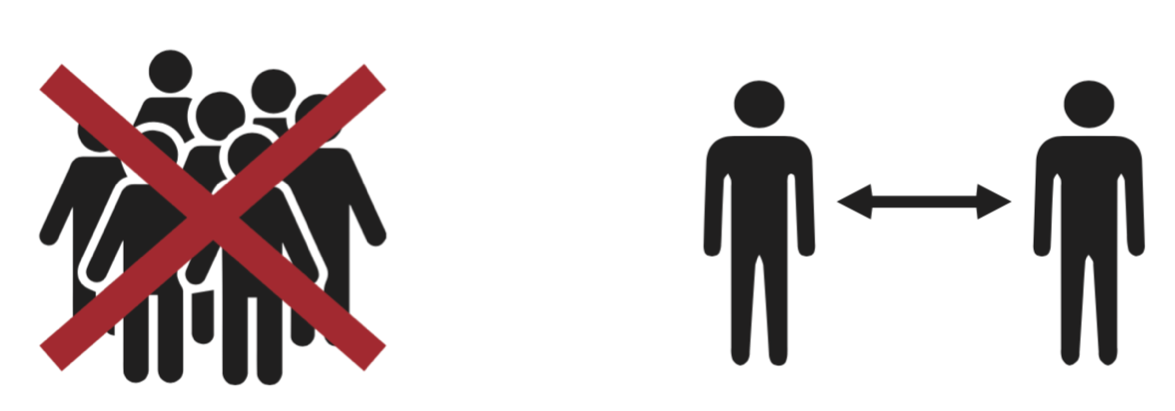PROTECTION AND SAFETY
NEVER LOOK AT THE SUN DIRECTLY WITH YOUR NAKED EYES OR THROUGH ANY OPTICS. YOU WILL PERMANENTLY DAMAGE YOUR EYES
EYE SAFETY
It is extremely important that we never look at the sun directly with our naked eyes or through a telescope, binoculars, lens, sunglasses or any optics, since you will permanently damage your eyes. Looking anywhere even near the sun on a normal day is extremely uncomfortable, and looking at it directly will harm our eyes. This is true when a part of the sun is eclipsed by the moon as well. Even if only 1% of the sun is uncovered, this would give us about 4000 times more light than the full moon. It is not just the visible light that affects you, but also the invisible ultraviolet and infrared portions of sunlight. You might think that it is okay to see the sun during the minute of annularity, but 4% of the sun is still visible as a ring and this is sufficient to cause damage. It is only during the few minutes of totality that it is safe to see the eclipse directly. But this will not be a total solar eclipse. Sunglasses also do not block enough sunlight. The same is true for X-ray film, CD/DVDs etc.

If it is dangerous to look at the sun directly with our naked eyes or through sunglasses, imagine the damage done to your retina if you look at the sun though even a small telescope of binoculars. Remember, we can even burn paper by focussing sunlight through a small lens. Glancing at the sun for a fraction of a second through a telescope will damage your eyes, even permanently. However there is an indirect way to see the eclipse safely with a telescope, which we will talk about later.

There are special eclipse glasses that can indeed be used to see the sun directly throughout the eclipse. These are made from material that will block the ultraviolet, visible and infrared light by factors as large as 100,000 and have to be obtained from reliable dealers. Since access to these glasses is difficult, we will talk later about safe ways of seeing the eclipses from your homes.
COVID-19 SAFETY
This eclipse will be unique since this will occur when many countries are in lockdown or have strong restrictions on public assembly due to the Covid-19 pandemic. The immediate effect of this is that we cannot gather in large numbers to see the eclipse together, like in the past. This means that people cannot share a few eclipse glasses and someone with a telescope and a way to use it to show others the eclipse, cannot do so. Though you might want to see the eclipse with your community, we strongly urge you to follow all the regulations about public gatherings in your country and stay safe. If your country does allow small gatherings, then please follow all official guidelines on social distancing from one another.

If you do access to eclipse glasses, be aware that sharing them amongst people is unsafe due to the risk of coronavirus transmission. Do not try to disinfect the surface of these glasses with sanitiser or soap since this may damage them. Hence, it is advised to share eclipse glasses only with people you are sharing a living space with.
If you are seeing the eclipse using one of the safe methods outlined later in this document, remember to still practice social distancing with each other and avoid touching common surfaces and equipment.
Stay safe, and enjoy the eclipse!
